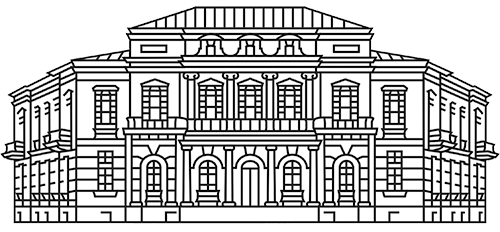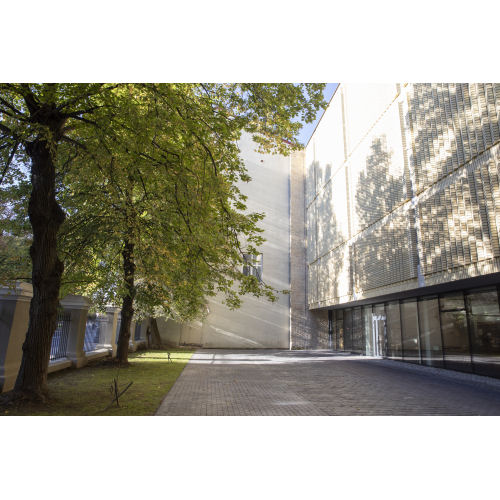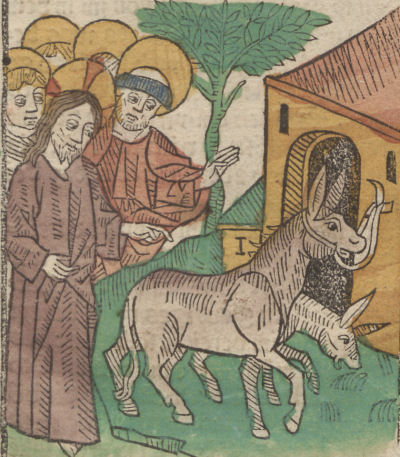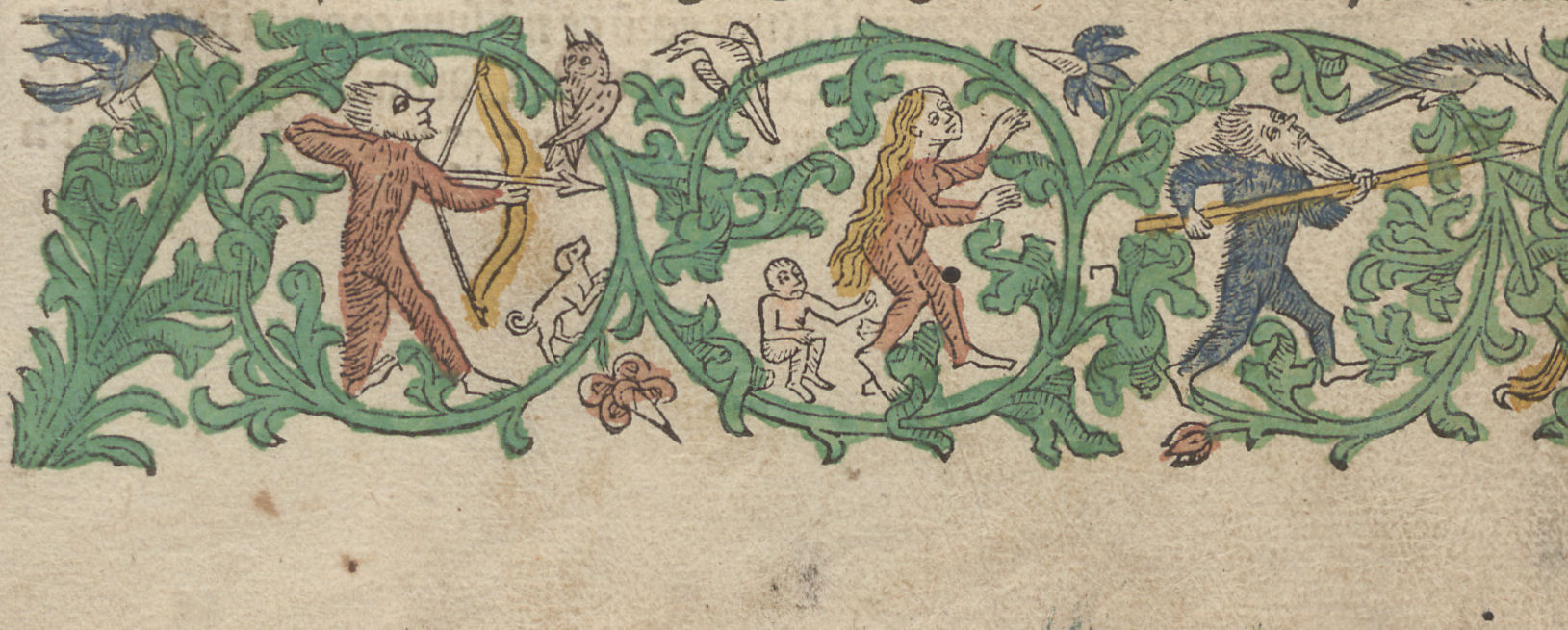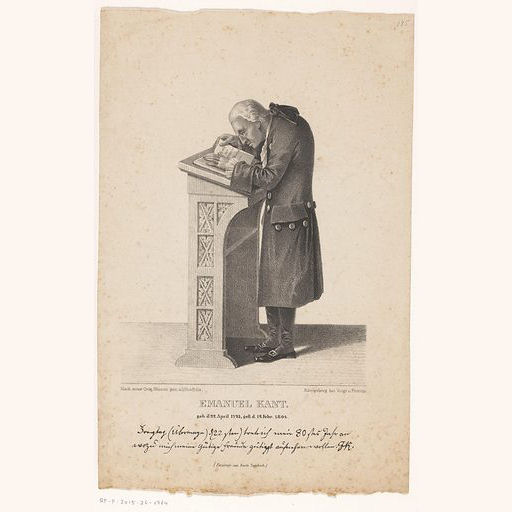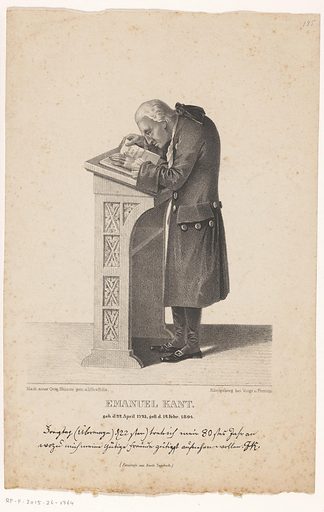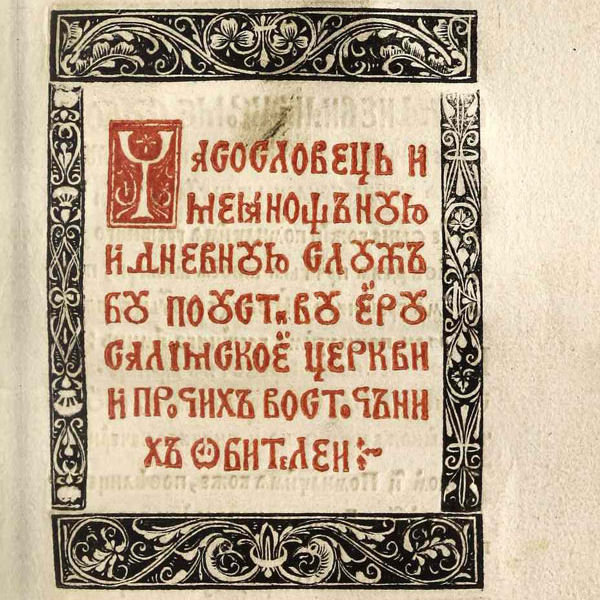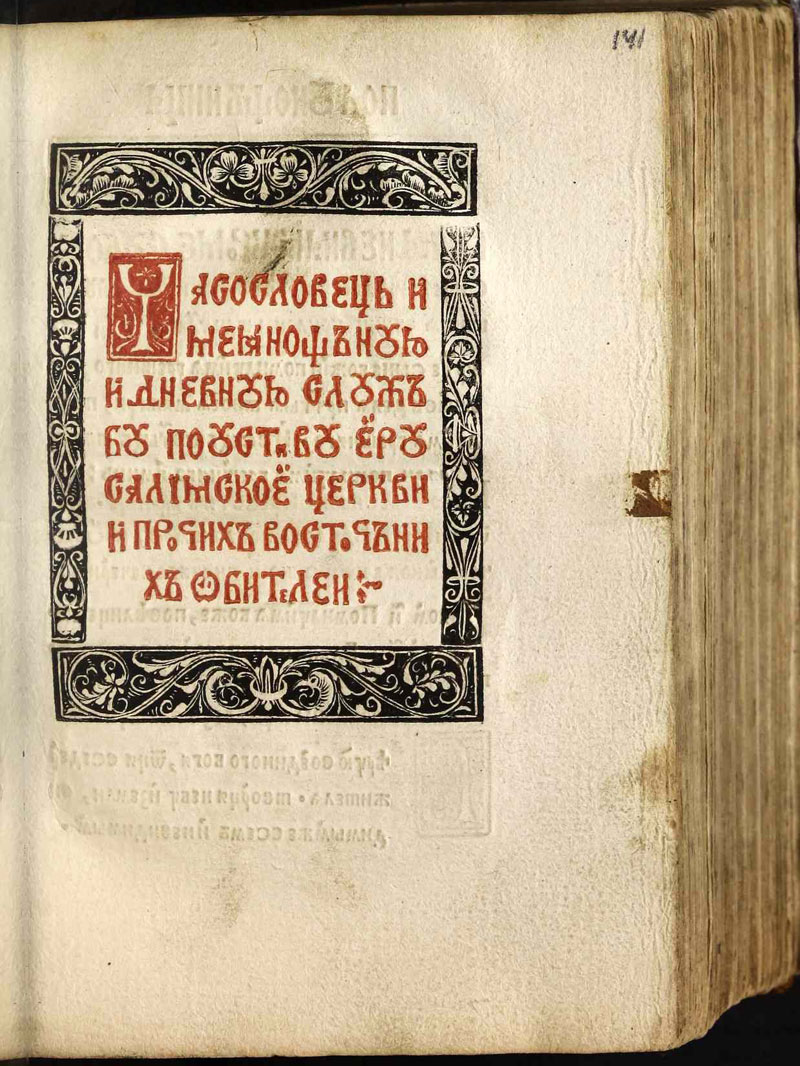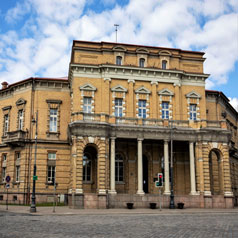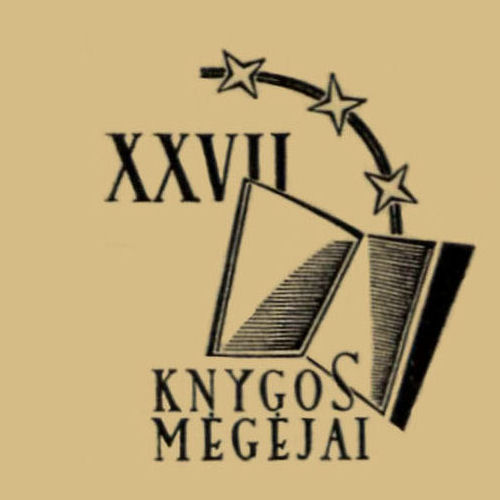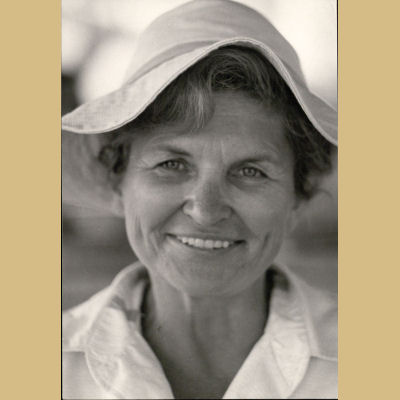Attention readers and visitors!
Attention readers and visitors!
October 31, the Library will be open from 8:00 a. m. to 4:00 p. m.
Virtual exhibition „Faciendi libros plures non est finis“
Virtual exhibition „Faciendi libros plures non est finis“
More than half a thousand incunabula are currently counted in Lithuania and this number is slowly but surely increasing. The Wroblewski Library of the Lithuanian Academy of Sciences currently holds 67 incunabula (one of which was identified during the preparation of the exhibition). This exhibition aims to present the incunabula, their unique features, and to show how the form of the first printed documents has evolved, allowing the book gradually to become what we are used to seeing nowadays. The visitors are also invited to become acquainted with the incunabula of the Wróblewski Library, to see their curiosities, and the uniqueness of individual specimens in one way or another. However, the exhibition does not pretend to be objective, especially in regard to that which is beautiful or interesting. The audience is invited to follow the links to view the books that were discussed in this exhibition or only mentioned in the Wroblewski Library’s list of incunabula, and to discover which ones are of personal interest. As the digitisation of the Wroblewski Library’s incunabula is completed, those who want to get to know one or another book in detail can browse the document of interest online. The links to the incunabula will be updated after the books have been digitised.
All the incunabula in the virtual exhibition are described mainly using the British Library’s Incunabula Short Title Catalogue, which, together with the German catalogue of incunabula, Gesamtkatalog der Wiegendrucke (GW), are the primary sources for researchers. Source numbers, which are given alongside the book descriptions, are the modern identification code for these books.
Dear users!
Dear users!
Dear readers,
We invite you to use Alma, the new library services platform activated at the Wroblewski Library of the Lithuanian Academy of Sciences.
From now on, please use our Virtual Library to search for and request items and extend loan period. The new library services platform may temporarily lead to incorrect display of certain bibliographic records, inaccurate search results in external sources, etc. The electronic catalogues previously used at the Library are no longer available.
We will make every effort to correct inaccuracies and errors in the new Alma platform as soon as possible. We hope that you will appreciate the advantages of this service platform and will be happy to use our library resources.
When you log in to our new Virtual Library for the first time, please select Click here to reset password and enter your email address in the pop-up window. In the email you will receive, you will be asked to enter your password to access the Alma platform. We recommend that you use the same password that you have been using to connect to the library’s former electronic catalogues or virtual library, as well as to the library’s digital archive and WIFI or VPN services. Once you have entered the password you have been using, you will be able to continue using the same password to access all the resources or services listed above. Your user ID (your reader card’s number) remains unchanged.
If you have any questions, please contact us at aptarnavimas@mab.lt or by phone +370 686 27532
Explorer of Wisdom. 300th Anniversary of Kant's Birth
Explorer of Wisdom. 300th Anniversary of Kant's Birth
In 2024, we commemorate the 300th anniversary of the birth and 220th anniversary of the death of Immanuel Kant (Immanuel Kant, 1724–1804), one of the most famous philosophers of the Enlightenment. This occasion encouraged us to look back and remember this significant personality not only for Europe, but also for Lithuania, to review his more important works that influenced the development of philosophy, and to present I. Kant’s connections with Lithuanian studies.
We invite you to see the exhibition dedicated to Kant
Design and texts by dr. Kotryna Rekašiūtė, dr. Timofej Murašov
Francysk Skaryna’s “Little Traveller’s Book” turns 500
Francysk Skaryna’s “Little Traveller’s Book” turns 500
In 2022, we celebrate the 500th anniversary of printing in the Grand Duchy of Lithuania. In 1522, the Ruthenian printer Francysk Skaryna issued the “Little Traveller’s Book”, a publication that marked the beginning of crucially important changes in the culture of Lithuania. The Grand Duchy of Lithuania became a member of the community of European countries that printed books, i. e. mastered the most modern means and methods of information and communication. Far from accidental, this development was caused by several reasons and was promoted by the most prominent Lithuanian statesmen, scholars, and people of culture belonging to several religious denominations. And this is what this virtual exhibition is about.
Reader services from September 20, 2021
Reader services from September 20, 2021
In accordance with a resolution by the Government of the Republic of Lithuania (2021-08-11 Nr. 651), the Wroblewski Library of the Lithuanian Academy of Sciences will be temporarily changing its procedure for provision of services. From September 20, 2021, the Library will provide contact services and run events only for persons who meet at least one criterion for the Lithuanian Covid immunity passport (“Passport of Opportunities”). The document must be presented to the Visitor Access Control Desk employee for validity check.
Visitors not in possession of the Passport of Opportunities or another Covid immunity document of equal validity will only be able loan or return items from the Main Collection at the Library’ Circulation Desk or the Book-O-Mat. As the number of visitors in the reading rooms, event and exhibition spaces (the entrance hall and the auditoriium) will be regulated in accordance with the general requirements for distance and/or space per person, visitors must register in advance by phone or e-mail.
***
- Until the end of the extreme situation period, the Library will work Monday through Friday, 8 a. m. to 5 p. m.
- Books and documents in reading rooms and at the Circulation Desk will be issued after you request items through the electronic catalogue, by phone, e-mail or in person.
- You are welcome to read ordered publications, use work places, and work on personal computers in all reading rooms while keeping a safe distance of 2 meters between persons.
- In order to work in the reading rooms, it is necessary to register in advance by phone or e-mail. The number of study places will be limited to ensure safe distance between readers. Readers who have not registered in advance and have not reserved a study place will be admitted to the reading rooms only if there are vacant places.
- You may stay in a reading room up to 4 hours a day.
- Copiers and scanners may be used only if agreed to by the reading room staff.
- Requested items from the Main Collection will be issued at the Library or Book-O-Mat.
- Visitors may enter the Library or reading rooms only if they are wearing protective masks (shields). It is strictly forbidden to remove masks inside.
- The Library reserves the right not to provide service to visitors with signs of acute upper respiratory infections (fever, cough, difficulty breathing, etc.).
- To request or return items from the Main Collection please call +370 5 262 3678 or e-mail: abonementas@mab.lt.
- To place a study place reservation and request items at the General and Periodicals Reading Room and the Humanities and Social Sciences Reading Room please call +370 5 262 2546 or e-mail: aptarnavimas@mab.lt.
- To request items at the Reference Reading Room please call +370 5 262 7935 or e-mail: donatas.ustinavicius@mab.lt.
- To place a study place reservation and request items at the Physical Sciences Reading Room please call +370 5 212 0447 or e-mail: egidija.cipariene@mab.lt.
- To place a study place reservation and request items at the Old Periodicals Reading Room please call +370 5 240 4834 or e-mail: senoji.periodika@mab.lt.
- To place a study place reservation and request items from the Manuscripts Collection at the Tadeusz Wroblewski Reading Room please call +370 5 262 3667 or e-mail: rankrasciai@mab.lt.
- To place a study place reservation and request items from the Rare Prints Collection at the Tadeusz Wroblewski Reading Room please call +370 5 262 3669 or e-mail: retispaudiniai@mab.lt.
The 27 Book Lovers (1930–1940): “Working for the Lithuanian Book”
The 27 Book Lovers (1930–1940): “Working for the Lithuanian Book”
The 27 Book Lovers was a bibliophilic society that existed in Kaunas in 1930-1940. According to its statute, it aimed to “cultivate the artistic book and make it popular in Lithuania”. The 27 Book Lovers fostered elitist bibliophilia. It had a fixed number of members (never more than 27), popularized artistically designed books, and produced numbered bibliophilic publications, which became standards of exemplary publishing. The Book Lovers united people from various professions: Lithuanian army officers, diplomats, lawyers, writers, and scholars. Bibliophilic societies and clubs existed in various countries across the world and became quite numerous in France, Germany, and Poland in the 1920s. Therefore, an idea to form a similar club emerged among Lithuanian intellectuals. It was in part prompted by their concern about Lithuanian book publishing and culture, which was still undeveloped at that time.
Why twenty-seven? Three multiplied by nine is three nines. As it is the name of a popular Lithuanian spirit, Vytautas Steponaitis playfully proposed to make this number part of the name of the new society. The Book Lovers had much fun with the symbolic numbers 3 and 9. Three nines were the upper limit for the number of members (during the decade of the society’s existence it had from 15 to 21 members), the term of office for the management board was three years, the anniversary was celebrated after nine years, the registration and bank account numbers ended in 27, the statute and regulations had 27 items each, the meetings took place only on the 27th day of a month. Vilhelmas Burkevičius summed up the activities of the 27 Book Lovers as follows: “A unique property of this society is its intimacy, a restricted number of members, it is the elite of book aficionados, united by their joint activities and determination to work for the Lithuanian book”.
In addition to bibliophilic publishing (eight books and two sheet publications), the 27 Book Lovers run book exhibitions and tours gave talks on book-studies topics at the society’s meetings. These presentations served as a basis for articles in the Chronicle of the 27 Book Lovers (two volumes came out in for 1933 and 1937; the third volume, slated for publication in 1940, was not completed). The society had its own library, which was being enriched by subscriptions to foreign bibliophilic periodicals and purchases of publications in book studies.
After the Soviet occupation in 1940, the society was dissolved and some of its members suffered repressions. Nevertheless, the bibliophilic ideas spread by the 27 Book Lovers stayed alive, and the society’s contribution to organization of bibliophilic movement, research in book history, and publishing of bibliophilic books made a considerable impact on the development of Lithuanian bibliophilia, book studies and book art.
The exhibition will tell you about society members, their everyday activities, publishing pursuits, and the circumstances of the society’s dissolution. The purpose of this exhibition is to shed light on documents that appear insignificant at first glance (protocols, bills, receipts, invitations, postcards, messages, etc.). These materials testify to the extremely purposeful, intensive, and interesting life of interwar Kaunas bibliophiles, which they lived by clear rules set by themselves. The exhibits (with a few exceptions) are from the archive of the 27 Book Lovers held by the Manuscript Department of the Wroblewski Library (LMAVB RS F59). Almost all of them are on display for the first time. These documents expand and, in some places, revise our view on the panorama of Lithuanian cultural life in the fourth decade of the 20th century.
The Life and Research of Marija Gimbutas in Sixteen Pages
The Life and Research of Marija Gimbutas in Sixteen Pages
To mark the birth centenary of the world-renowned archaeologist Marija Gimbutas, the Wroblewski Library assembled an exhibition aiming to display her documents and photographs from the Library’s holdings. Due to the pandemic restrictions, the exhibition had to be changed to a virtual format only. Told in a few words, the life story of Marija Gimbutas is as follows. She completed studies in archaeology at Vilnius University and escaped to the West with her family during World War II, finally settling in the United States. Excellent academic preparation in Lithuanian universities, fluency in numerous languages and outstanding personal achievements brought to Marija Gimbutas recognition as one of the most prominent researchers in the archaeology and mythology of Europe. She developed an original theory of the origin of Indo-Europeans, including the Balts. Owing to her works, materials on the archaeology and mythology of the Balts became part of global archaeological knowledge. The present exhibition will highlight contributions made by Marija Gimbutas to a number of research fields. Even though Marija Gimbutas is remembered as neither a pagan nor a feminist, her works served as an inspiration for Lithuanian pagan movements such as the Romuvians, for devotees of Lithuanian ethnic culture, and for the feminist movement in the United States. The present exhibition will be less focused on Marija Gimbutas’ personal life. In this way, more intrigue will be left in store for those who take interest in this exceptional personality. The Wroblewski Library is a perfect place to learn more about her. The Library’s Manuscript Department holds large collections of documents related to Marija Gimbutas herself (F339), her husband Jurgis Gimbutas (F351), cousin Meilė Lukšienė (F391) and uncle Augustinas Janulaitis (F267); the Rare Books Department, too, holds the Marija Gimbutas Collection. Numerous photos of the celebrated researcher can be found in our photograph collection. This exhibition will feature unique documents unveiling the life and work of Marija Gimbutas and will trace her connections with Lithuania.
You are cordially invited to visit our virtual exhibition.
